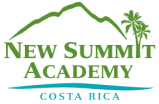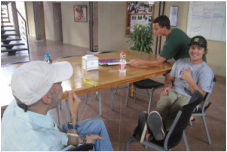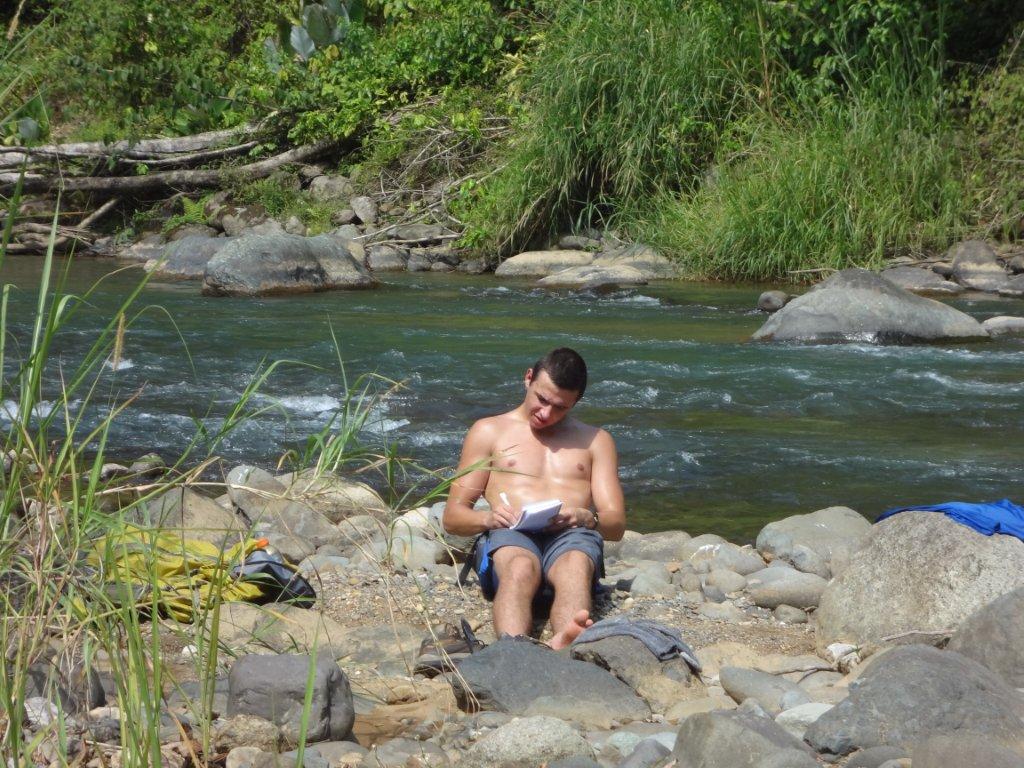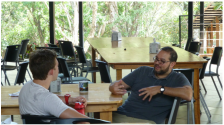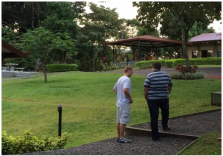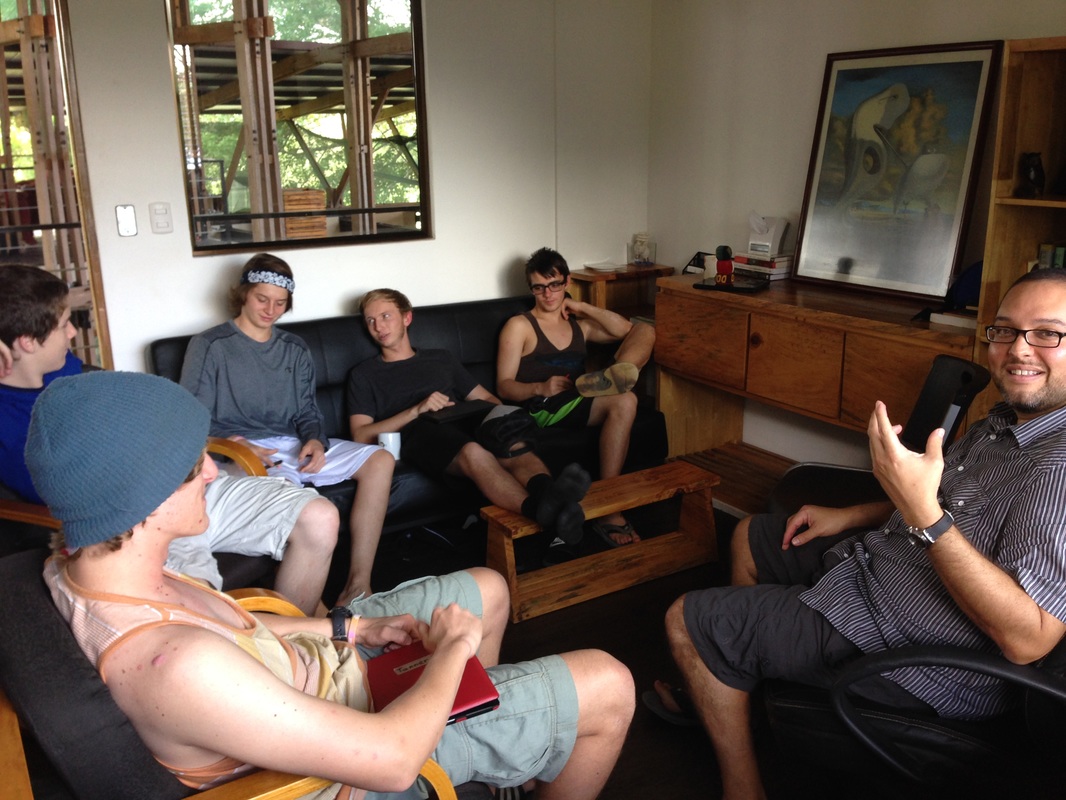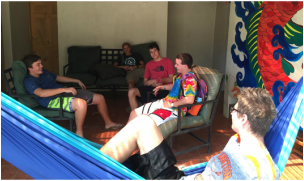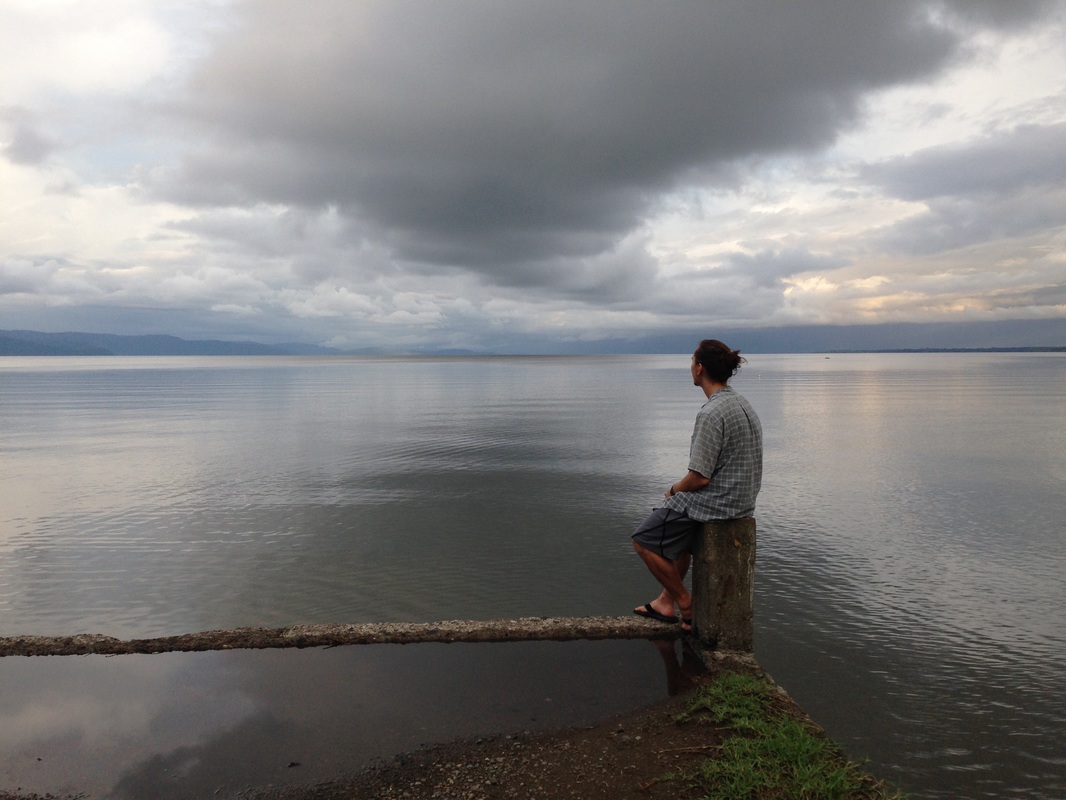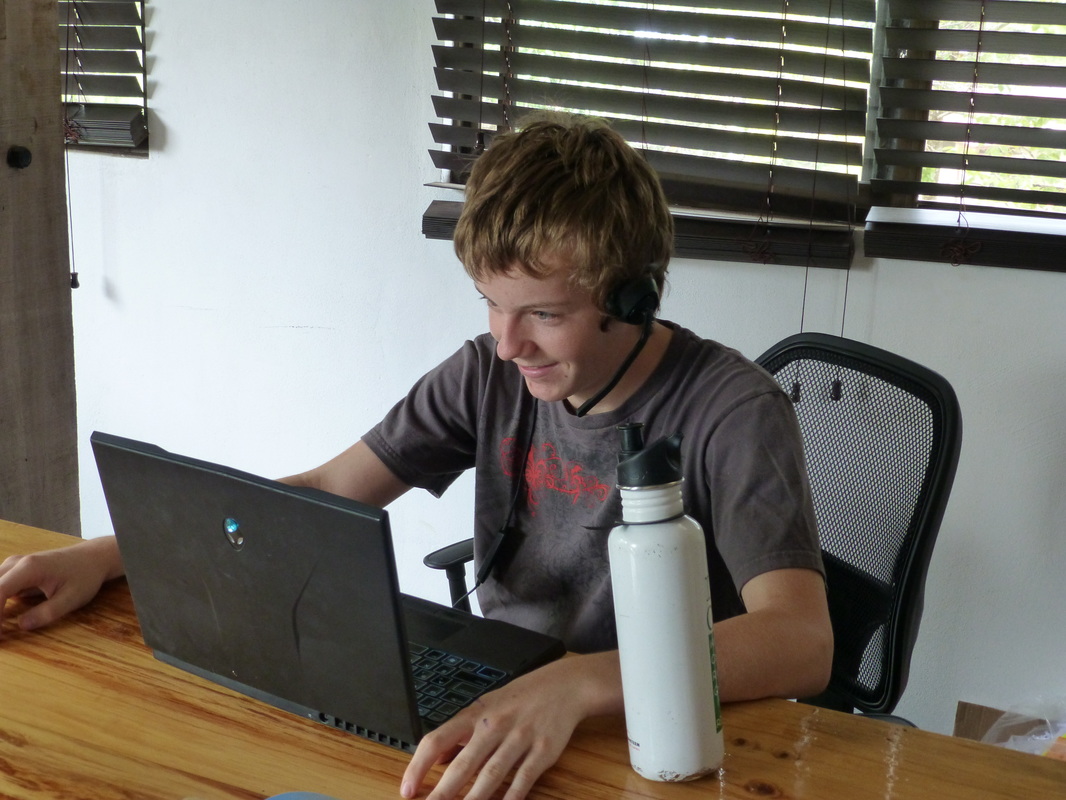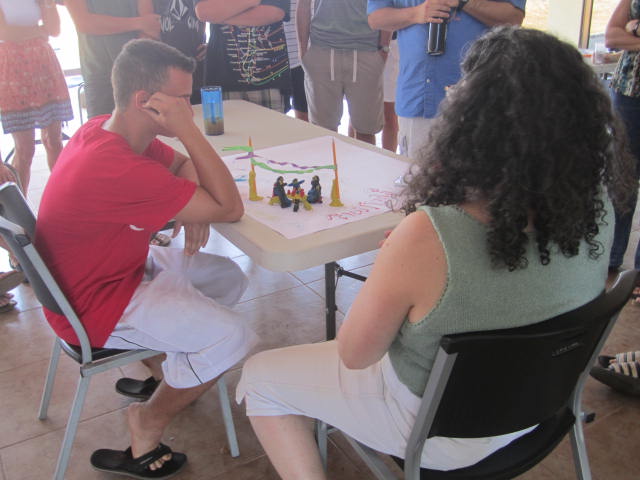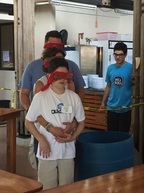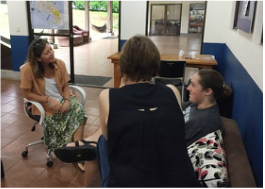Facilitating Personal Growth
|
Upon arrival, many students who enroll at New Summit Academy report feeling overwhelmed by, or otherwise disinterested in, the prospect of engaging in “more therapy”. Yet internal motivation and personal engagement are the foundations for real therapeutic growth. As a result, we assume a more natural approach to counseling. At NSA, we refer to the therapeutic process as “Personal Growth” (PG) because all people are constantly engaged in emotional and psychological development as a result of our unfolding life experiences. The “Personal Growth Approach” is meant to teach skills to process one’s own growth process so that it can be applied outside of the NSA context as well. NSA does not profess to “fix students” and create imperfect human beings. Rather, we celebrate the diversity and unique attributes of each of our students, focusing on their own unique strengths and challenges and how they can harness those for processing their future goals, aspirations, and obstacles to overcome.
In order to reduce psychological resistance to this natural process of development, our students are not required to “do therapy” (at least not in the traditional sense). They do attend mandatory groups (*see below) and check in with a PG staff every week regarding their own personal goal development. This PG staff may be their Case Manager (CM) though not always; we use a team approach to ensure that students feels comfortable enough to express their own uncomfortable emotions when needed. Often students create personal connection with a variety of PG staff due to shared activities (Aventuras, music, art, etc.). So if a student would prefer to talk with a therapist who is not their assigned Case Manager, it is accommodated provided he updates his CM on his general process. The student’s Case Manager is in charge of treatment planning and parent communication; as a result, the PG department collaborates closely to ensure that therapeutic progress does occur, and a family’s needs are met. Student empowerment is a priority at NSA. As an adolescent, peer input is often regarded and valued more significantly than an adult’s perspective. As a result, we utilize the voice of the community when engaging a student in his therapeutic work through the use of Community Councils and Group Counseling (*see below). As a result of this “non-traditional approach to therapy”, the initial psychological resistance generally subsides; eventually, most students lean into their core issues and, in effect, “do therapy”. |
Individual Counseling
|
All students are expected to attend therapeutic groups and meet with a Personal Growth (PG) staff weekly regarding goal development and progress based on their AOA’s (Areas of Attention). These AOA’s are co-created by the student and Case Manager (CM) based on the student’s individual goals, as well as input from parents and other health care providers (including psychological testing, etc.). These counseling sessions occur at designated times and/or more impromptu meetings based on issues and needs; they may transpire in a PG office at school, under a tree on campus, or on a beach or forest trail during an Aventura outing. They may occur before or after a family session or a Community Council Meeting. The goals of these sessions will vary based on a student’s progress through the program. However, over-arching themes include working to develop and consistently engage in: Personal Responsibility and Ownership over his therapeutic process; Emotional Intelligence and Effective Communication Skills; Social Skills/Healthy Relationship Development including perspective-taking and collaboration; Healthy Identity Development including peer leadership skills; Executive Functioning such as organization, goal planning and implementation (including delayed gratification and frustration tolerance); and Constructive Engagement in personal interests (gained through exposure to a variety of natural, cultural, and artistic experiences) which leads to healthy Mood Management.
|
Group Counseling
|
A variety of therapeutic groups are offered at New Summit Academy, and many students choose to participate in a number of them. All students are required to attend therapeutic groups every week.
|
Optional Thematic Groups |
|
“My group of choice”
This is a voluntary group run by a therapist whose field of expertise is Substance Abuse. This group follows a risk reduction paradigm (as students are not “forced” to declare abstinence); however, they must be willing to look at their use and process how that plays into their individual growth and family systems work. There are 1-2 student leaders who are in charge of co-facilitating the group and inviting students to join. Student members may be invited by other students, prompted by their Case Manager to join as part of their SCAFA process, or directed via an Honor Council Meeting decision. Students invested in this SA group work will be introduced to a series of approaches (SMART Recovery, CBT, REBT, Systemic Theory, and Healthy Coping Skills Training) in order to better cope with high-risk situations that could trigger a relapse. Also utilized are workshops and documentaries regarding brain-based research, as well as information on specific substances and other psychological considerations that may enhance the risk of developing an addiction. |
|
“Unplugged Group”
Unplugged is a weekly group whose aim is to help students who struggle with technology overuse. The purpose of the group is to help students gain improved insight and achieve a more balanced lifestyle if their use became problematic. Adolescents are surrounded by technology in their lives: social media, gaming, internet, and cell phones. This use can, at times, negatively impact various areas of life (academic performance, school attendance, participation in sports and exercise, healthy eating and nutrition, personal hygiene, relationships with family and friends, personal integrity, and emotional volatility). This group is run by a clinical therapist as well as selected peer leaders; students within the group are able to relate to each other due to their shared experiences with technology. As a result, they are less resistant to the change process. |
|
“Root Ed Group”
Root Ed is a PG group that seeks to support students who are transitioning into the NSA milieu by establishing initial connections and relationships with peers. With the help of other consistent peer attendees, senior student leaders of Root Ed cultivate an environment that is warm, welcoming, and playful, while facilitating a wide variety of experientials, games and short videos. While engaging in the student- led activities, new students have an opportunity to get to know the community and let the community get to know them. Root Ed is required for all students while they are on Orientation, but many students choose to continue attending after they become regular students based on the positive experiences that they’ve had. |
|
“Tranquilo Group”
In Tranquilo group students have the opportunity to explore different introductory mindfulness-meditation practices. The purpose of these practices is the cultivation of certain innate skills that allow people to work with their mind in more efficient ways. Today studies in Neuroscience demonstrate how our thoughts can shape structures in our brain that augments the potential for well-being. By uniting the scientific discoveries of the West with the insights of Eastern practices, that date from at least 4000 years ago, students can use their mind to shape their neural pathways to increase their capacity for awareness, happiness, and self-possession . In Tranquilo group, students learn that over time, they have the capacity to rewire and strengthen their brain’s ability to access states of joy, compassion, and calmness instead of sorrow, indifference, and anxiety. Thus increasing the possibility of enjoying more fulfilling relationships, deeper capacity for introspection, and self-knowledge. |
Family Work
|
One of the most important elements in a student’s Personal Growth process is the work that occurs within his family system. NSA students make significant strides in their personal and emotional development due to the academic, experiential, and therapeutic components of the program. However, this growth is not reserved for the student individually; parents, siblings, and care providers partake in a “parallel process” to ensure that a student’s growth “sticks”. At New Summit Academy, we work to prioritize the healthy functioning of the overall family unit (including care providers and siblings whenever possible).
In order to achieve this goal, the family’s assigned Case Manager (CM) will facilitate weekly update calls to care providers, as well as skype-based, family counseling sessions as warranted. As well, the CM may suggest that family members engage in selected readings, writing assignments, or personal counseling / support groups at home to enhance the potential for insight and growth. Though these individualized suggestions are not mandatory, they are highly recommended based on the perceived needs of the student. NSA hosts 2 parent Zoom support groups every week - one is a more structured guiding call to work on the parenting plan, and the second is a parent processing group to create community and support with other parents. Parents may also sign up for one on one coaching with our Clinical Director (included in tuition). During the course of a student’s stay, family members may also be advised to attend two or more Family Workshops; these occur a few months after a student’s enrollment (New Family Workshop) as well as before program graduation (Transition Workshop). During these weekend intensives, students and their families engage in group therapy sessions, individual family sessions, and psycho-educational trainings; they also enjoy “down time” so that new dynamics can be applied and reparative memories can be made. After a successful orientation period including a healthy “In-Country Visit” (generally part of the New Family Workshop), students may go on home visits for scheduled breaks. The Case Manager will help prepare the family for these visits through the creation of a Home Visit Agreement and a Daily and Weekly Schedule. A designated PG staff will be available for consultation throughout the week away; the CM will debrief the family upon the student’s return to campus in order to assess and formulate continued goals for growth. |
Therapists
|
NSA’S full time milieu therapists and Case Managers are a part of the family community and participate in everything from classes to cookouts to experiential education trips. This allows for deep and rewarding relationships to develop with students and other staff, creating a sense of community and camaraderie. NSA therapists are either local Costa Ricans (Ticos) or non-citizens (typical US therapists living in Costa Rica). Therapists at NSA all have in common values focused on healthy relationships, flexibility, interdependence in community, solution-oriented processing, and strengths-based approaches.
|
